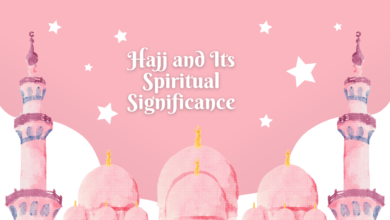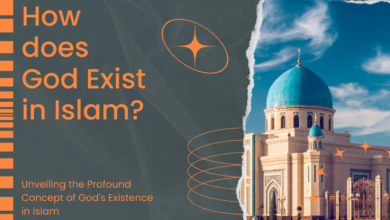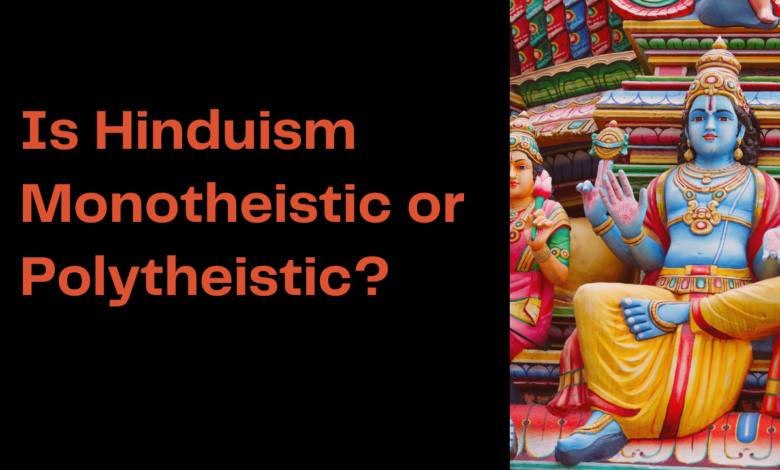
Is Hinduism Monotheistic or Polytheistic?
Hinduism is not strictly monotheistic, as it does not revolve around a single, all-powerful deity. However, some sects and individuals within Hinduism do emphasize the worship of a single supreme deity while acknowledging the existence of others.
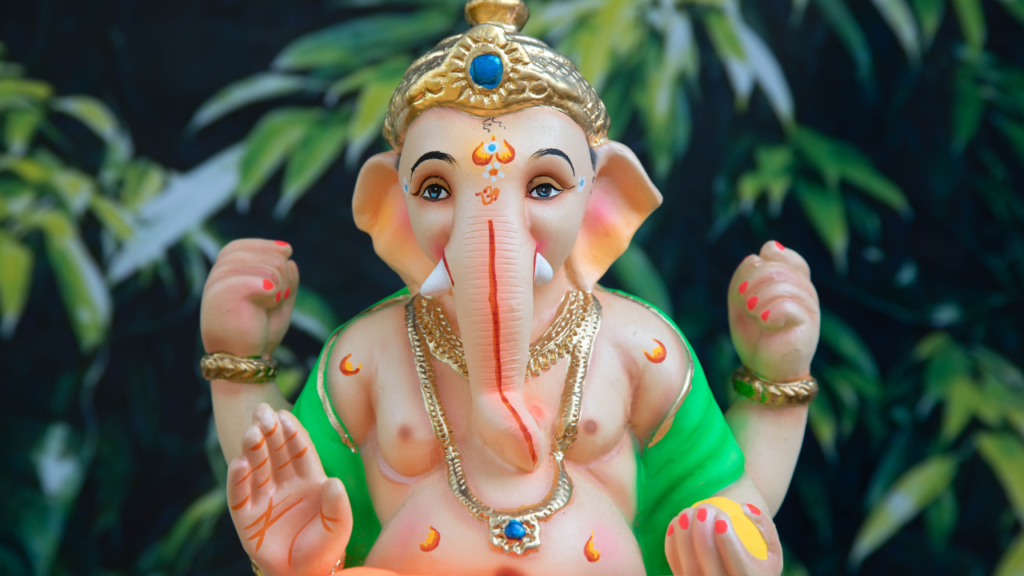
Introduction
Hinduism, one of the world’s oldest and most complex religions, has long fascinated scholars, theologians, and spiritual seekers. One of the recurring questions that arise when trying to understand Hinduism is whether it is monotheistic or polytheistic. The answer to this question is not straightforward, as Hinduism’s religious and philosophical diversity defies simple categorization.
Monotheism: The Belief in a Single, Supreme Deity Monotheism is the belief in a single, all-powerful, and all-encompassing deity. In monotheistic religions, this one God is considered the ultimate source of all existence and is often thought to be beyond human comprehension. Hinduism, as it is commonly practiced, seems to deviate from the strict monotheistic definition since it is associated with a multitude of gods and goddesses.
Also check.
- Which types of Clothes are Haram on Men?
- What does Jesus Eat?
- What is Hinduism Religion?
- What Is a Christian?
- What is Shirk Islam?
Polytheism
Polytheism: The Worship of Multiple Deities Polytheism, on the other hand, is the belief in and worship of multiple deities. In a polytheistic religious framework, each deity typically represents specific aspects of life, nature, or human existence. Hinduism is often characterized as polytheistic due to its vast pantheon of deities, with gods and goddesses representing various forces and principles in the universe.
The Complexity of Hinduism While Hinduism is often labeled as polytheistic, it is essential to delve deeper into the religion’s intricacies to understand its true nature. Hinduism is not a monolithic faith but a rich tapestry of beliefs, philosophies, and practices that have evolved over thousands of years. Within this tapestry, there are several elements that challenge the simple monotheistic or polytheistic labels.
- Henotheism: Henotheism is the belief in and worship of one primary deity without denying the existence of others. In Hinduism, many practitioners focus their devotion on a specific god or goddess, such as Vishnu, Shiva, or Devi (the Divine Mother), considering them the supreme deity while acknowledging the existence of other deities.
- Monism: Some Hindu philosophical schools, such as Advaita Vedanta, teach monism, which posits that all apparent distinctions in the world are illusory, and there is ultimately only one reality, often referred to as Brahman. This perspective could be seen as monotheistic, as it holds that all gods and goddesses are mere manifestations of the one divine reality.
- Panentheism: Panentheism is the belief that God or the divine is both transcendent (beyond the material world) and immanent (present within all things). Some Hindu sects subscribe to panentheism, suggesting that the divine permeates the universe, and all deities are expressions of this divine presence.
- Evolution of Deities: Hinduism has a unique tradition of evolving and incorporating new deities into its pantheon. Over time, various local and regional gods and goddesses have been assimilated into the broader Hindu tradition. This adaptability and inclusiveness add to the complexity of defining Hinduism as purely monotheistic or polytheistic.
Ultimately, the answer to whether Hinduism is monotheistic or polytheistic depends on one’s perspective and the specific sect or school of thought within Hinduism. For some, it is monotheistic, with a focus on a single, all-encompassing divinity, while for others, it is polytheistic, with a diverse array of gods and goddesses.
Conclusion
In conclusion, Hinduism’s nature as either monotheistic or polytheistic is a subject of ongoing debate and interpretation. Its diversity and philosophical richness make it a religion that defies easy categorization. The best approach to understanding Hinduism is to appreciate its multifaceted and inclusive nature, recognizing that its followers may interpret and practice their faith in various ways, ranging from the worship of a single supreme deity to the veneration of multiple gods and goddesses.
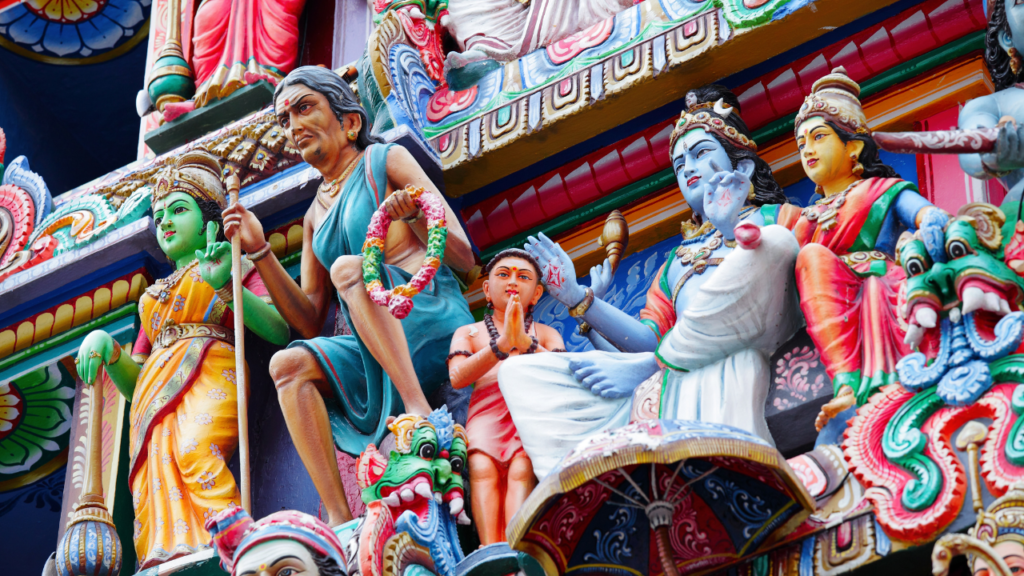
FAQs
Is Hinduism a monotheistic religion?
Hinduism is not strictly monotheistic, as it does not revolve around a single, all-powerful deity. However, some sects and individuals within Hinduism do emphasize the worship of a single supreme deity while acknowledging the existence of others.
Is Hinduism a polytheistic religion?
Hinduism is often characterized as polytheistic because it has a vast pantheon of gods and goddesses representing various aspects of life, nature, and the universe. Many Hindus worship multiple deities.
What is henotheism in Hinduism?
Henotheism is a concept in Hinduism where practitioners focus their devotion on one primary deity, such as Vishnu or Shiva, without denying the existence of other deities. It is a form of partial monotheism within the religion.
Can Hinduism be described as monistic?
Yes, certain Hindu philosophical schools, like Advaita Vedanta, teach monism, which posits that all apparent distinctions in the world are illusory, and there is ultimately only one reality (Brahman). This perspective is akin to monotheism.
What is panentheism in Hinduism?
Panentheism is a belief in Hinduism that God or the divine is both transcendent and immanent. It suggests that the divine permeates the universe, and all deities are expressions of this divine presence. Some Hindu sects subscribe to panentheism.
Why is Hinduism so diverse in its beliefs?
Hinduism’s diversity is a result of its long history and the assimilation of various local and regional beliefs and deities over time. It is an inclusive and adaptable religion that accommodates a wide range of perspectives.
How do Hindus reconcile the different interpretations of Hinduism’s nature?
Hindus have a tradition of respecting diverse beliefs and interpretations within the religion. They often acknowledge that different individuals and sects may have varying perspectives, and this diversity is seen as a strength rather than a division.
Can one be both monotheistic and polytheistic in their Hindu beliefs?
Yes, many Hindus adopt a syncretic approach to their faith, simultaneously honoring a single supreme deity while revering other gods and goddesses for their specific attributes and roles.
Are there any Hindu texts or scriptures that address the monotheism-polytheism debate?
Hindu scriptures like the Vedas, Upanishads, and Bhagavad Gita offer diverse perspectives on the nature of the divine. The interpretations of these texts contribute to the variety of beliefs within Hinduism.

